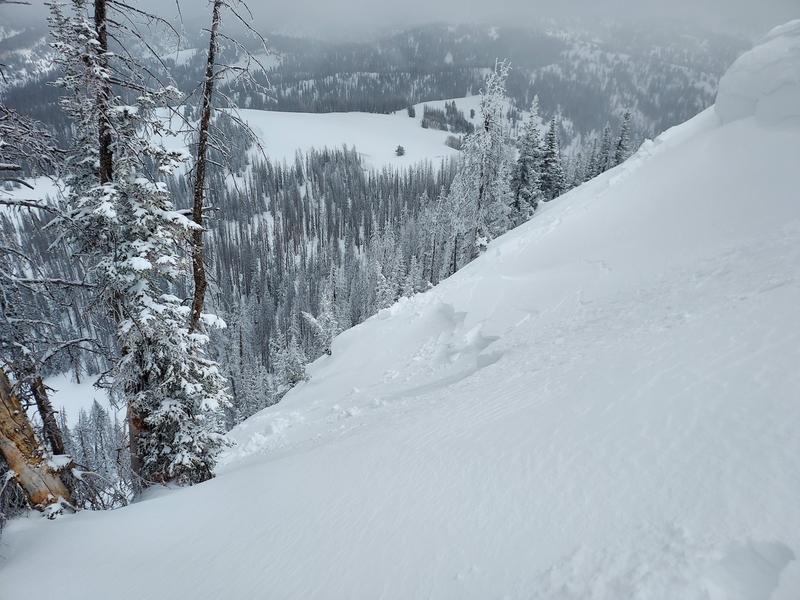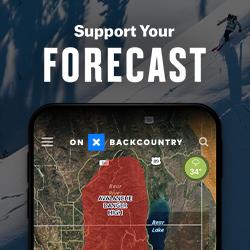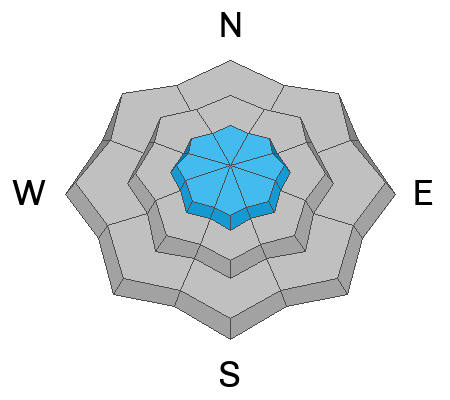Please help support the UAC rebuild our website backend platform to ensure the ongoing security of the website and the data stored on the site by donating to our spring campaign. Save lives by
making a donation today!
Since yesterday, an additional 2-3 inches of snow fell bringing the storm totals since Sunday evening to 6-8 inches of new snow (0.6-0.8" water).
This morning temperatures are in the teens F and winds from the north are blowing 6-15 mph with slightly higher gusts.
Today expect similar weather to yesterday with mostly cloudy skies with periods of snowfall that should deliver an inch or two of new snow. A low pressure trough with north winds will bring more cold air over Utah today keeping high temperatures in the 20s F. Winds will stay fairly light and slowly shift direction and blow from the west this afternoon.
The hard icy snow surface is slowly getting buried and conditions are improving. High, north-facing slopes before the storm started Sunday afternoon still had some old powder under a soft ice crust. Most other slopes had a more substantial ice crust.
A few more inches of snow should fall Tuesday afternoon, then a break and some sunshine Wednesday. Another area of low pressure will reach Utah Thursday bringing more snow through the weekend. It doesn't look there's a day with major snowfall, but there should be a similar pattern with a few inches each day. Building on top of the most recent snow, conditions could be quite nice by next weekend.
For all Uinta observations and archived avalanche activity click
HERE.







